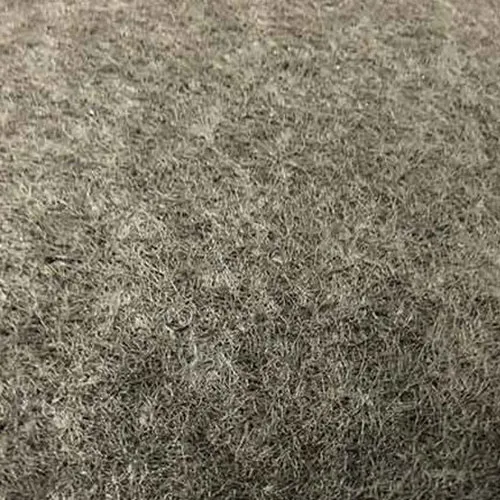Choosing the Right Filter Cloth for Your Industrial Needs
2024-08-21
Filter cloth is a critical element in many industrial filtration processes, from wastewater treatment to chemical processing. However, with a wide range of materials, weave patterns, and specifications available, selecting the right filter cloth for your specific application can be challenging. This blog will guide you through the key factors to consider when choosing the right filter cloth to ensure optimal filtration performance and longevity.
1. Material Selection
The material of the filter cloth is one of the most important factors to consider, as it must be compatible with the specific conditions of your filtration process. Common materials include:
- Polyester: Known for its high tensile strength, chemical resistance, and durability, polyester filter cloth is suitable for applications involving harsh chemicals and high temperatures.
- Polypropylene: Polypropylene is highly resistant to acids, alkalis, and organic solvents, making it ideal for chemical processing and wastewater treatment applications.
- Nylon: Nylon filter cloth offers excellent abrasion resistance and flexibility, making it a good choice for applications where mechanical strength is critical, such as in mining and mineral processing.
- Cotton: For applications requiring a natural, biodegradable material, cotton filter cloth is a good option. It is often used in food processing and certain environmental applications.
2. Weave Pattern
The weave pattern of the filter cloth determines its filtration efficiency, flow rate, and cake release properties. Some common weave patterns include:
- Plain Weave: This is the simplest and most common weave pattern, where the warp and weft threads cross alternately. Plain weave filter cloth offers good filtration efficiency and is easy to clean.
- Twill Weave: In a twill weave, the warp and weft threads are woven in a diagonal pattern. This weave provides higher filtration efficiency and greater mechanical strength, making it suitable for heavy-duty applications.
- Satin Weave: Satin weave filter cloth has a smooth surface, which allows for easy cake release and reduces clogging. It is often used in applications where a high-quality finish is required.

3. Filtration Efficiency
The filtration efficiency of the filter cloth is determined by its pore size and permeability. The pore size should be small enough to capture the desired particles but large enough to allow an adequate flow rate. High filtration efficiency is crucial in applications where even the smallest particles need to be removed, such as in pharmaceutical production or food processing.
4. Chemical Compatibility
The filter cloth must be chemically compatible with the substances it will come into contact with during the filtration process. Exposure to incompatible chemicals can degrade the filter cloth, reducing its effectiveness and lifespan. Ensure that the material of the filter cloth can withstand the specific chemicals, temperatures, and pH levels of your application.
5. Durability and Strength
Durability is another key factor to consider, especially in demanding industrial environments. The filter cloth should be able to withstand mechanical stress, high temperatures, and abrasive particles without degrading or tearing. Consider the tensile strength and abrasion resistance of the material when choosing a filter cloth for heavy-duty applications.
6. Ease of Maintenance
Maintenance requirements can significantly impact the overall cost and efficiency of your filtration process. Choose a filter cloth that is easy to clean and replace, with good cake release properties to minimize downtime and labor costs. Needle felt filter cloth, for example, is known for its ease of cleaning and long service life.
7. Customizability
Finally, consider whether the filter cloth can be customized to meet the specific needs of your application. Many manufacturers offer filter cloths with custom dimensions, weave patterns, and finishes to ensure optimal performance in your filtration system.
Conclusion
Choosing the right filter cloth is crucial for achieving optimal filtration performance in any industrial process. By carefully considering factors such as material selection, weave pattern, filtration efficiency, chemical compatibility, durability, and ease of maintenance, you can select a filter cloth that will meet your specific needs and enhance the efficiency and longevity of your filtration system. Investing in the right filter cloth not only improves the quality of your final product but also contributes to the overall efficiency and cost-effectiveness of your operations.


